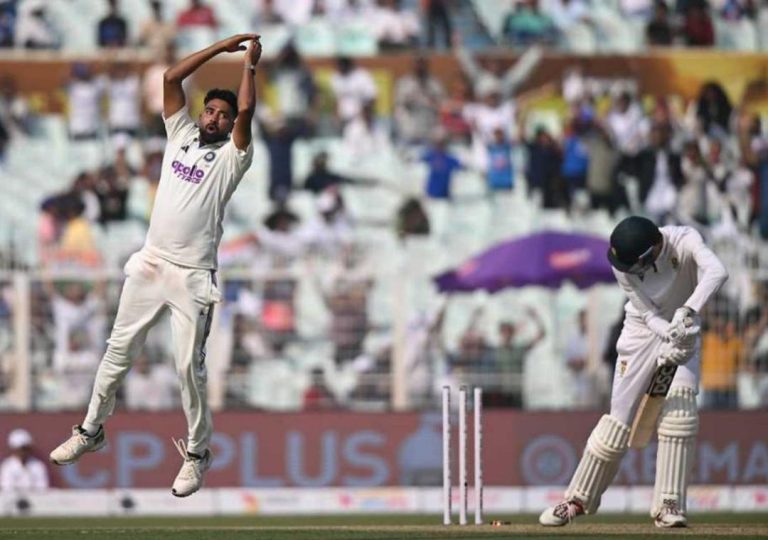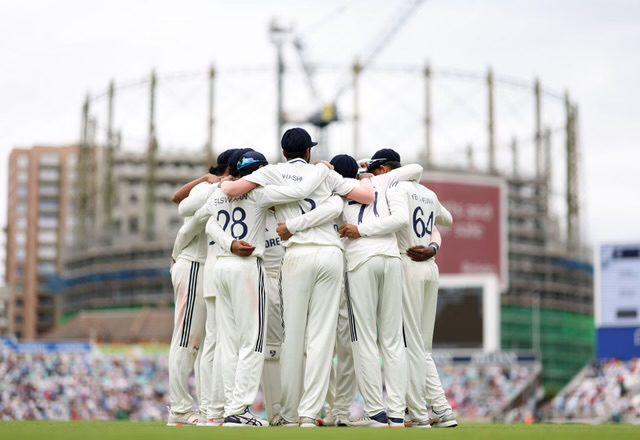
Ravindra Jadeja Compares Captaincy in T20 & Test Format: Insights from the Indian Cricketer
Ravindra Jadeja, the Indian cricketer, has been making headlines lately for his exceptional performance on the field. Not only has he been a valuable asset to the Indian team with his batting and bowling skills, but he has also been entrusted with the responsibility of leading the team in various formats. In a recent conversation with R Ashwin, Jadeja shed light on the differences and challenges one faces while leading a team in T20 and Test formats.
Captaincy in Test Cricket: Calculative and Simple
According to Jadeja, captaincy in Test cricket is different from T20Is. He emphasized that in Test cricket, you have to change two-three fielders as per the need of the bowler. This underscores the importance of flexibility and adaptability in Test cricket, where the game is a longer and more strategic affair. Jadeja believes that captaincy in Test cricket is not complicated like IPL or T20Is, but rather it’s simple and calculative. This means that the captain needs to have a deep understanding of the game, the players, and the opposition to make informed decisions.
Jadeja’s comments on Test cricket captaincy are not surprising, given India’s recent success in the format. Under the leadership of Virat Kohli and Ajinkya Rahane, the Indian team has been able to adapt to different situations and conditions, showcasing their ability to think on their feet. Jadeja’s own performances as a player have been impressive, and his leadership skills have been put to the test in various international matches.
Captaincy in T20Is: Every Ball is an Event
On the other hand, Jadeja believes that captaincy in T20Is is a different ball game altogether. He emphasized that every ball is an event in T20 cricket, which means that every decision counts. This level of intensity and pressure is unmatched in any other format, and Jadeja believes that a captain needs to be agile and flexible to respond to the ever-changing situation.
T20Is require a different set of skills and strategies compared to Test cricket. In T20Is, the game is shorter, and the teams have to be more aggressive in their approach. The captain needs to be able to think quickly and make decisions that can have a significant impact on the game. Jadeja’s comments highlight the importance of adaptability and quick thinking in T20Is, where every ball is a new challenge and every decision can be a game-changer.
Challenges of Captaincy: A Mental Game
Jadeja’s comments also touched upon the mental aspect of captaincy. He emphasized that captaincy is a mental game, where the player needs to be able to think clearly and make decisions under pressure. This is particularly true in T20Is, where the game is fast-paced and the pressure is intense.
As a player, Jadeja has had to deal with the mental challenges of captaincy, and he believes that it’s essential to stay focused and composed under pressure. He emphasized the importance of having a strong support system, including teammates and coaches, to help manage the mental demands of captaincy.
Conclusion
Ravindra Jadeja’s comments on captaincy in T20 and Test formats provide valuable insights into the challenges and demands of leading a team in different formats. While Test cricket requires a more calculative and simple approach, T20Is demand agility, flexibility, and quick thinking.
As a player, Jadeja has experienced the highs and lows of captaincy, and his comments highlight the importance of adaptability, mental toughness, and strategic thinking. His insights are not only relevant to cricketers but also to leaders in other fields, who face similar challenges and demands in their roles.






